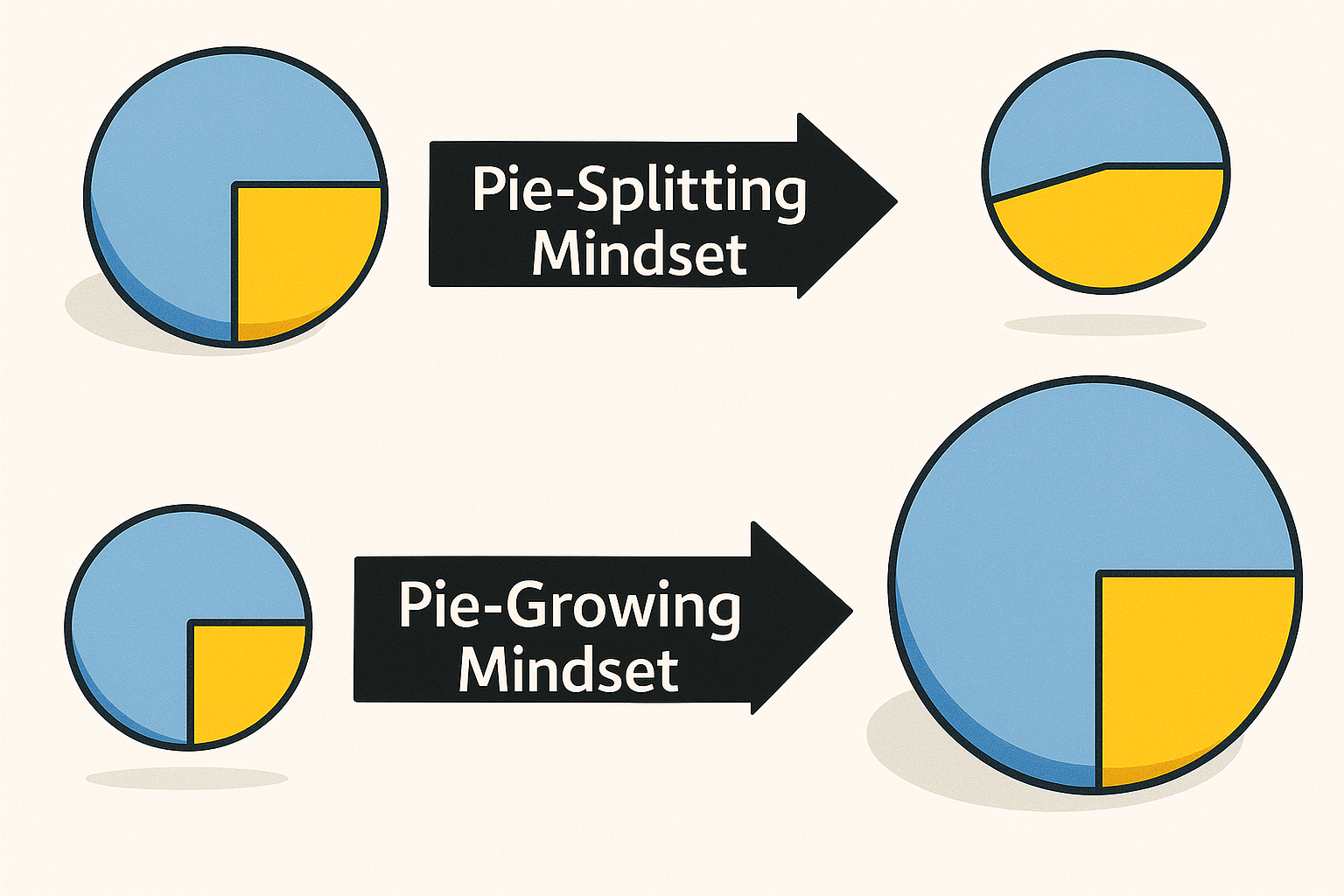Growing the Pie Beats Fighting Over Crumbs

The Plan That Never Works
Your local school district faces budget pressures. Wealthy districts immediately circle the wagons, opposing any funding formula that might redirect "their" tax dollars to struggling schools. Their logic seems sound: there's only so much money, so helping others must mean less for us.
Meanwhile, residents with good health insurance resist healthcare reforms that expand coverage. Their thinking: if everyone gets quality healthcare, that must diminish what we have.
This is zero-sum thinking: the belief that resources are fixed, that your gain must be my loss. This framework is wrong.
The Fatal Flaw
Zero-sum thinking feels true because it triggers visceral fear: "I have mine. I don't trust we'll all be better off together." But this reaction, while understandable, misses that most situations aren't zero-sum at all. They're opportunities where collaboration creates new value.
Take those school districts. The zero-sum view says "fixed pot of money, protect what's ours." But when neighboring districts improve, something remarkable happens: better-educated populations attract businesses, raise property values regionwide, reduce crime, and expand the tax base. The pie grows.
Those wealthy parents who feared "sharing" resources discover their property values increased, communities are safer, and their children have richer networks of peers. They didn't lose. They gained.
Healthcare's Hidden Abundance
Healthcare reveals zero-sum thinking also. Universal systems ration and avoid giving care. Preventive access reduces expensive emergencies. Coordinated purchasing drives down drug costs. Streamlined administration frees resources for actual care.
The person who feared losing "good" employer insurance discovers universal coverage offers better protection against job loss and medical bankruptcy. They haven't lost healthcare. They've gained healthcare security.
We Cling to Scarcity
If positive-sum solutions work so well, why resist them? Because zero-sum thinking feels safer and simpler. Protecting what you have seems less risky than pursuing what you might gain. But these instincts lead us to miss enormous opportunities for mutual benefit.
Consider Global Trade
International trade perfectly illustrates this choice. Zero-sum thinking treats global commerce as battle: if another country exports more, we're losing. This drives trade wars and protectionism.
But collaborative trade creates wealth that wouldn't exist otherwise. When countries specialize and trade freely, both benefit from expanded markets, lower costs, and accelerated innovation. German engineering in Japanese cars doesn't hurt German workers. It creates demand for German expertise while giving consumers better vehicles at lower prices.
Countries that embrace positive-sum trade don't fall behind. They become essential nodes in global networks of prosperity. South Korea didn't get wealthy by hoarding low-skilled manufacturing. It evolved toward technology and design while others handled basic assembly.
The Choice
The shift from zero-sum to positive-sum thinking means asking different questions:
Instead of "How do we protect our share?" ask "How do we grow what's available?"
Instead of "What might we lose?" ask "What might we build together?"
Instead of "How do we maintain advantage?" ask "How do we create mutual advantage?"
This isn't naive optimism. It's practical strategy. The communities and countries that thrive are those that expand possibilities rather than fight over limitations.
The pie was never fixed. The only question is whether we'll keep fighting over today's crumbs or start baking a bigger future together.